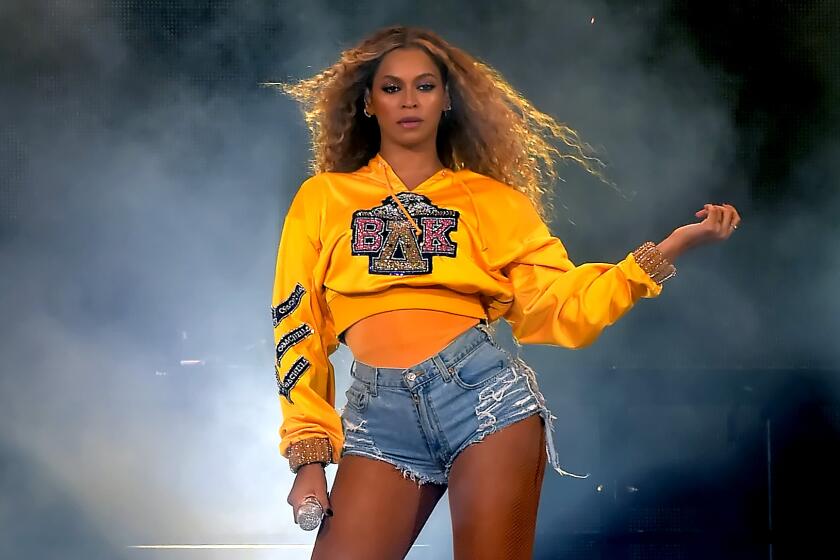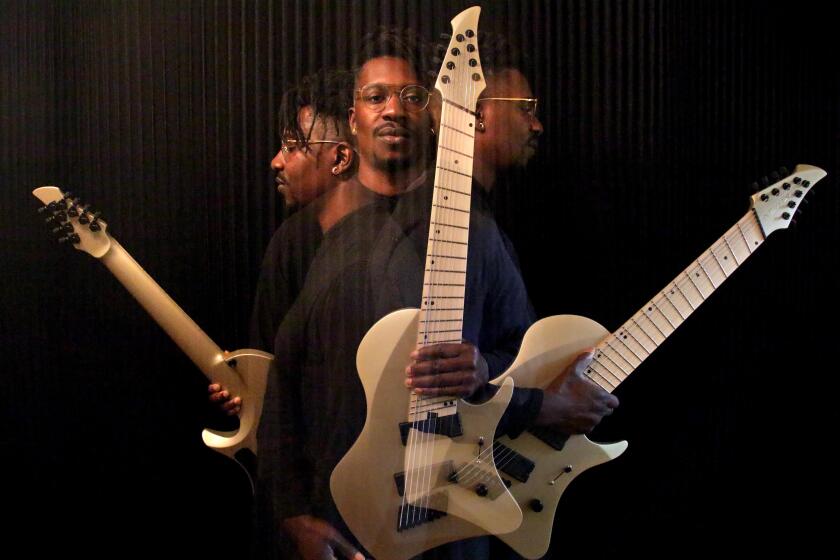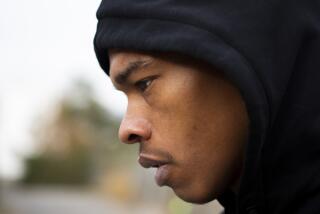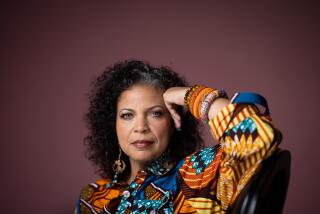The revolution is being streamed: Rappers DaBaby and Lil Baby make protest music for the masses
In the music video for his new top-five protest single, âThe Bigger Picture,â hip-hop star Lil Baby zigzags through the streets of his hometown, Atlanta, on a bike during recent protests wearing a Black Lives Matter T-shirt and a face mask that says No Justice No Peace. Interspersed with clips of the artist rapping among protesters is news footage from recent uprisings throughout the country. âYou canât fight fire with fire, I know / but at least we can turn up the flames some,â Lil Baby, 25, raps through distorted vocals as footage of a police car on fire in downtown Atlanta is shown.
Lil Baby didnât start rapping until 2017, after a stint in prison on drug and gun charges, but heâs quickly achieved crossover stardom through a prolific stream of trap singles (his biggest hit to date is 2018âs âDrip Too Hardâ with fellow Atlanta rapper Gunna.) Heâs signed to Quality Control, the powerbrokers behind stars such as Lil Yachty and Migos, and his album âMy Turn,â released in February, returned to No. 1 on the Billboard album chart in wake of the protests, a flex that caught the eye of the music industry in the high-turnover streaming era. âI got power now, I gotta say something,â he raps on âThe Bigger Picture.â

Lil Baby isnât the only chart-topping rapper to respond to the moment. DaBaby, the charming 28-year-old Charlotte, N.C., native whose hit song âSugeâ (named for imprisoned mogul Suge Knight) catapulted him to stardom last year, released a new version of the Roddy Ricch-assisted single âRockstar,â dubbed the âBLM Remix,â days after the original version topped the Billboard Hot 100. It was the rapperâs first No. 1 on the chart. (âRockstarâ now sits at No. 2 on the Hot 100, but continues its run at No. 1 on Spotifyâs Top 50.)
While the two rappers have little in common besides their similar monikers and occasional collaboration together, their ascension during a time where hip-hop reigns as the dominant genre makes them two of todayâs biggest music stars. Theyâve collaborated with artists such as Camilla Cabelloand scored endorsement deals with companies like Reebok. Neither is considered a politically conscious rapper; there would have been no outcry, or even a raised eyebrow, if theyâd posted Black Lives Matter graphics on their social media accounts and moved along. Instead, they picked up their pens and rush-released urgent new bars about the uprisings.
BeyoncĂŠ has followed up her star turn on Megan Thee Stallionâs chart-topping âSavageâ remix with a brand-new song celebrating Blackness
The original version of âRockstarâ has dominated streaming charts for weeks, hinged on a plucked guitar riff over which DaBaby raps about having PTSD following an incident in 2018 in which he fatally shot a man inside a Walmart. (In the song, DaBaby claims he was defending his daughter;he was later found guilty of a misdemeanor weapons charge and received probation.)
In the new version of âRockstar,â DaBaby, who has publicly accused police of harassing him since he became famous, raps about his lifetime of interactions with law enforcement (âAs a juvenile, police pull their guns like theyâre scared of meâ) before addressing recent protests. âNow weâre all fed up and nâ coming back for everything / Rockstars, nâ / Just watched the news, theyâre burning cop cars, nâ / Kill another nâ, break the law / then call us outlaws nâ,â he raps, aggressively emphasizing âcop carsâ and âoutlaws.â Both the original version and the remix of the song feature the hook, âBrand new Lamborghini, fâ a cop car / With a pistol on my hip like Iâm a cop.â

Lil Baby and DaBaby arenât the only hip-hop artists whose new music reflects the current unrest. The Atlanta-based rap group Spillage Village recently released a video for its single âEnd of Dazeâ that features footage from protests displayed on a vintage TV screen in the middle of a field. After the June 12 killing of Rayshard Brooks by Atlanta police, Wale dropped âJune 5/QueenZnGodZ,â charging police with âthinking the badge is better than having some heart.â Oxnard native Anderson. Paak rapped âsicker than the COVID how they did him on the groundâ on his new âLockdown.â
This isnât novel in rap, of course. Artists from Public Enemy and N.W.A to Kendrick Lamar and 21 Savage have long included messages about race and politics in their work.
Still, at a time when celebrities and brands are under increased scrutiny to say the right things about systemic racism and police brutality, thereâs been an ongoing discussion about the role and effectiveness of celebrity activism. The scrutiny is heightened for Black celebrities who sometimes feel an immense pressure to illuminate the plight of an entire race.
From a designer of far-out guitars to a club-music collective to a rapper-turned-vegan chef, hereâs a guide to 27 diverse Black-owned music ventures
Case in point: Last week, hip-hop superstar J. Cole released âSnow on the Bluff,â a song that seemed to take aim at Noname, a burgeoning female rapper who regularly speaks out on social and political issues. In the song, Cole takes issue with Nonameâs âtoneâ in a now-deleted tweet where she called out âtop-sellingâ rappers for their silence on social media after Floydâs death. Cole, who has increasingly touched on social issues, subsequently tweeted: âI havenât done a lot of reading and I donât feel well equipped as a leader in these times,â while adamantly standing by his song. While the song itself has been labeled by some critics as a misguided (and even misogynistic) attack on Noname based on his own insecurities, Coleâs response to the criticism underlines the dilemma rappers sometimes face when theyâre positioned (or position themselves) as leaders in ways they arenât equipped to handle.
That same day Lil Baby released âThe Bigger Pictureâ video, Brooks was fatally shot in the back by an Atlanta officer after a physical altercation in a Wendyâs parking lot. âCorrupted police been the problem where Iâm from / but I would be lying if I said it was all of them,â Lil Baby raps in âThe Bigger Picture.â And yet, in the week since charges were filed against the officers, including felony murder for former officer Garrett Rolfe, an âunusualâ number of their fellow officers âcalled-outâ of work, signaling a loyalty to uniform and power over an oath to serve and protect.
Lil Baby and DaBaby are rich young music stars, not organizers or activists. Hundreds of years of systemic racism arenât going to be solved in a song. But hip-hopâs preeminence in American popular culture provides young Black artists a chance to be heard. And neither money nor fame shield Lil Baby and DaBaby from bearing the weight of being Black in America.
More to Read
The biggest entertainment stories
Get our big stories about Hollywood, film, television, music, arts, culture and more right in your inbox as soon as they publish.
You may occasionally receive promotional content from the Los Angeles Times.












